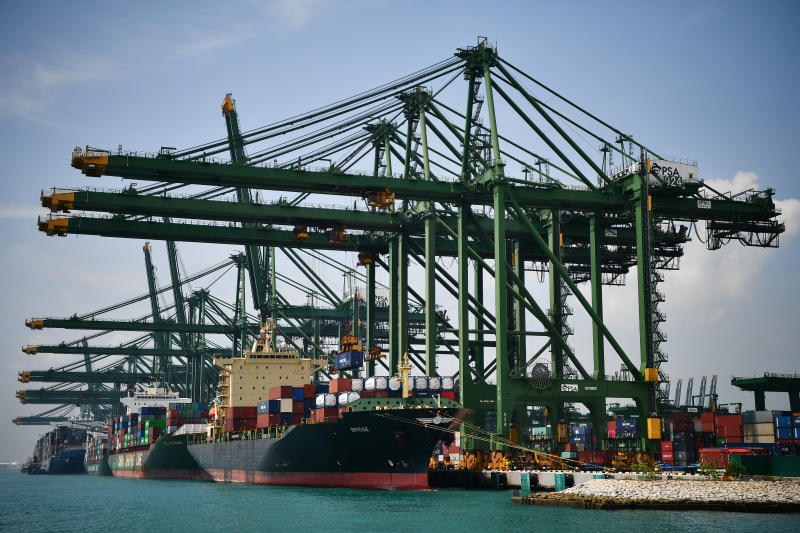Singapore-UK free trade deal kicks in as Brexit transition period ends
Sign up now: Get ST's newsletters delivered to your inbox

The UK is Singapore's third and second-largest trading partner for goods and services respectively.
PHOTO: ST FILE
Follow topic:
SINGAPORE - A free trade agreement (FTA) between the United Kingdom (UK) and Singapore takes effect from 7am on Friday (Jan 1), ensuring that companies from both countries continue to enjoy the same trading benefits even as the UK leaves the transition period for its exit from the European Union.
The EU-Singapore Free Trade Agreement will no longer apply to trade between UK and Singapore when the new deal kicks in, said the Ministry of Trade and Industry on Thursday.
Both countries have completed their respective domestic procedures for the FTA's provisional application, which enables them to apply treaty commitments on a provisional basis until the FTA is ratified by both countries and enters into force.
The UK is Singapore's third and second-largest trading partner for goods and services respectively, as well as its top investment destination in Europe. In turn, Singapore is the UK's largest trade and investment partner in South-east Asia.
The UK-Singapore FTA was inked on Dec 10 by Minister for Trade and Industry Chan Chun Sing and UK Secretary of State for International Trade Elizabeth Truss.
The Ministry of Trade and Industry (MTI) said the UK-Singapore FTA provides certainty and clarity in trading arrangements between both countries.
"Companies will be able to enjoy the same EU-Singapore FTA benefits when trading between the UK and Singapore under the UK-Singapore FTA," MTI said.
These include tariff elimination for goods trade, increased access to services and government procurement markets, and a reduction of non-tariff barriers.
In terms of tariffs, the UK-Singapore FTA will maintain the same timeline for tariff reductions as the European Union-Singapore FTA.
This means that 84 per cent of Singapore exports entering Britain will continue to be duty-free once the agreement enters into force. By Nov 21, 2024, tariffs on virtually all remaining products will be eliminated.
Liberal and flexible rules of origin for Britain and Singapore's key exports to each other's markets, such as cars, chemicals, electronics and pharmaceuticals, will continue to be provided for.
Singapore companies will also continue to enjoy enhanced market access in the UK for Asian food products made in Singapore, such as har gow (prawn dumplings) and sambal ikan bilis (spicy crispy anchovies). These goods will enter the UK tariff-free under flexible rules of origin, up to a combined quota of 350 tons annually.
Meanwhile, service providers, professionals and investors will have enhanced market access, creating a level playing field for businesses in both Britain and Singapore. This includes sector-specific rules on non-discrimination and transparency.
A wide range of services is covered under the agreement, including architecture, engineering, management consultancy, as well as hotel and restaurant services.
The UK will grant Singapore enhanced access to city-level and municipal-level government procurement opportunities, which means that firms here can bid for more government projects in Britain. Companies that are expected to benefit include those in transport, financial services and utilities.
The agreement will also do away with unnecessary technical barriers to trade for Singapore and British exporters. For example, it will reduce duplicative testing, lowering costs for exporters. Sectors that will benefit include electronics, motor vehicles and vehicle parts, and pharmaceuticals.
The FTA also allows Singapore and Britain to continue enjoying a comprehensive Intellectual Property Rights Chapter, which covers copyright, enforcement and geographical indications.
Beyond the agreement, Singapore and the UK have committed to start negotiations for a high standard investment protection agreement within two years of the FTA coming into force, and aim to conclude the negotiations within four years.
MTI said: "This will ensure that our bilateral investments will be covered by robust and up-to-date treaty protections, and provide our businesses and investors with the certainty of investment protection."

